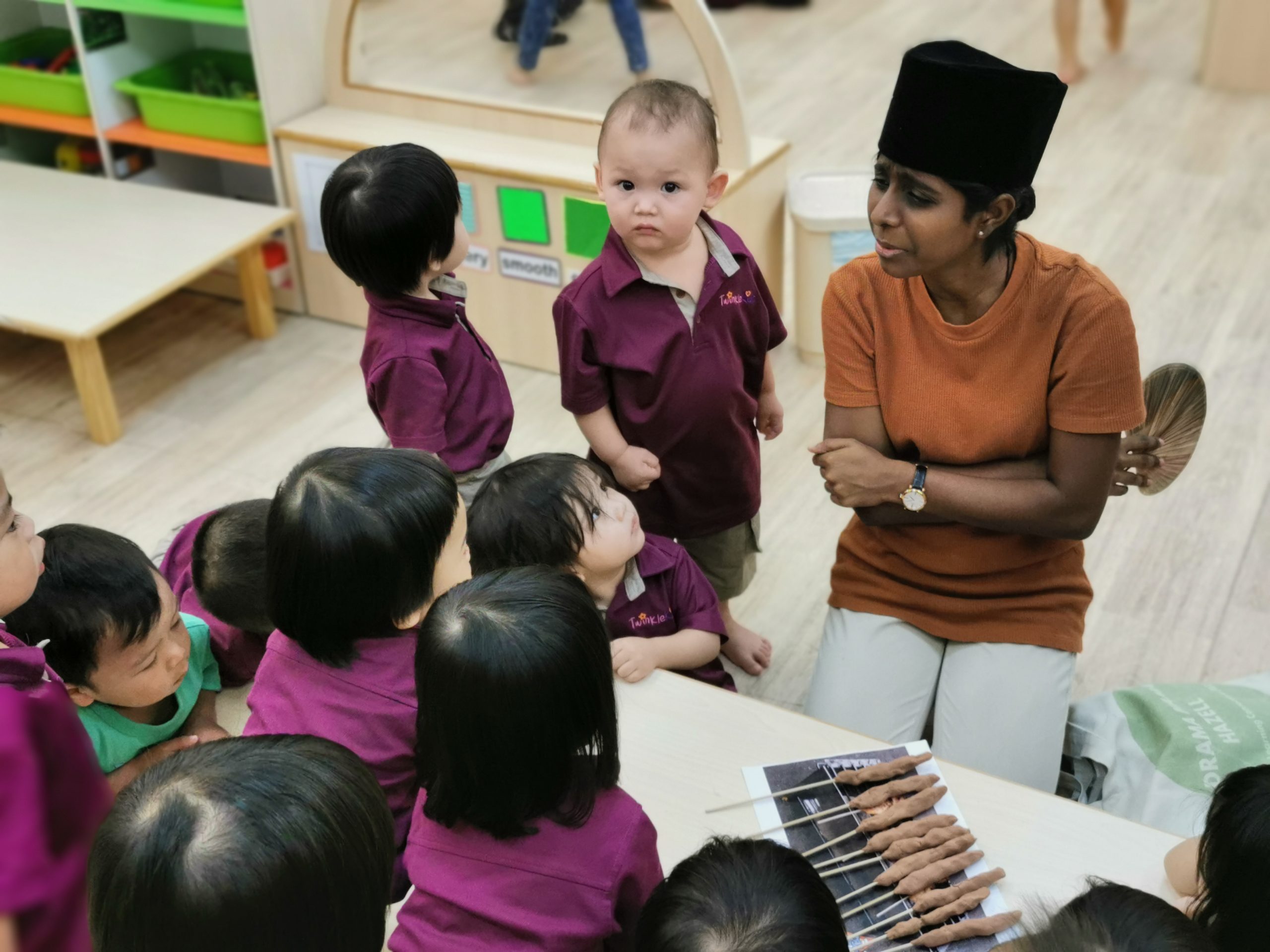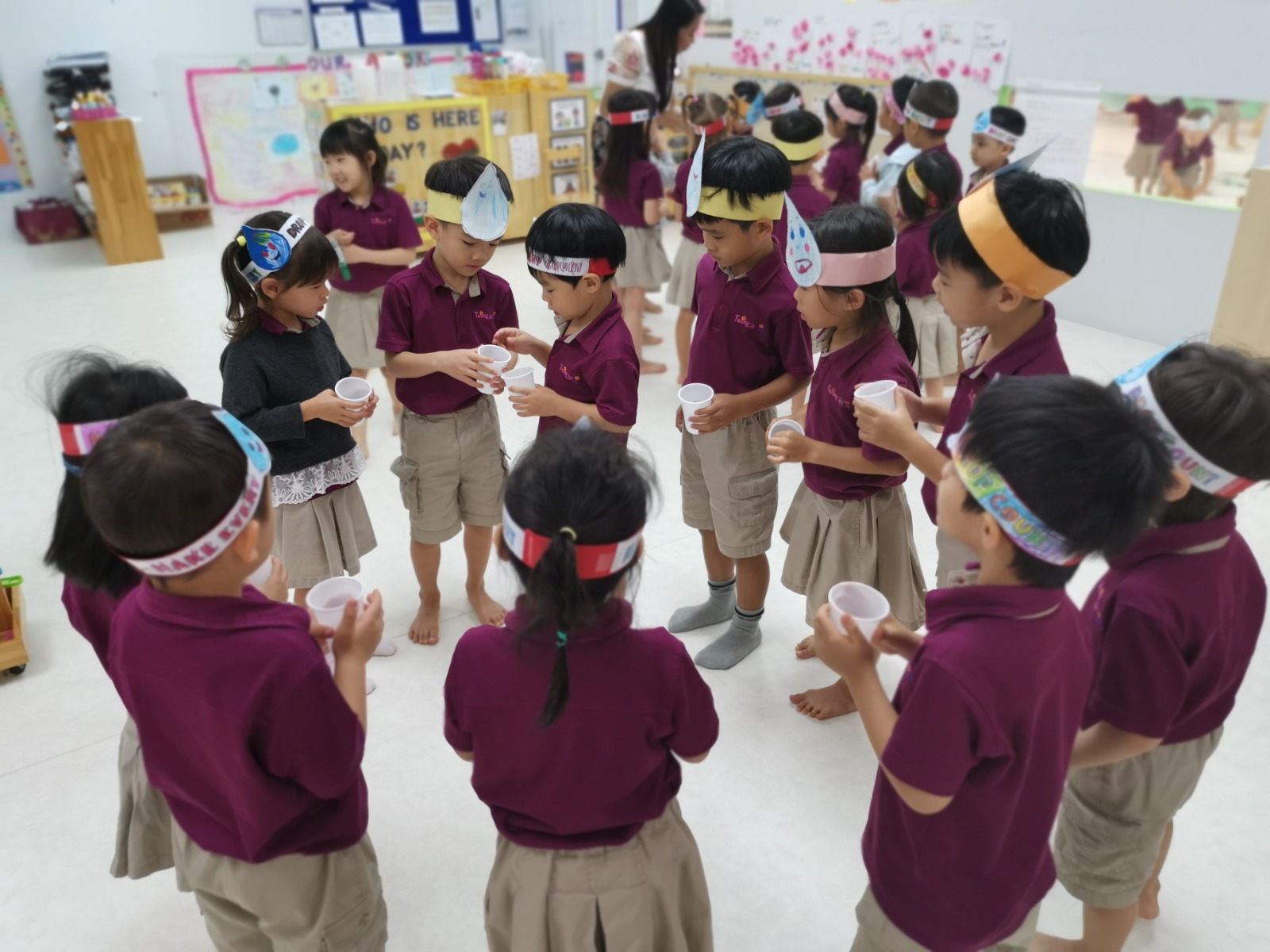Theatre Performing Arts
Changi Business Park, Siglap or Toa Payoh
for more information!

We engaged professional drama trainers to conduct the programme from The Learning Connections (“TLC”) which is a well-established and known providers in the Early Childhood field.
Children are involved in progressive arts and engage them in meaningful arts experiences that promote creative exploration, collaborative learning, and inspiration for the imagination.

Throughout the programme, children will be exposed to drama, music and movement, visual arts and storytelling. Our integrated programme will provide numerous opportunities for children to engage in meaningful dialogues with their drama educator(s) and peers to gain an understanding of themselves and the world they live in. They will explore, imagine, create, try new ideas, experiment with materials that will help them to learn and develop an in-depth understanding of the ideas/ topics/ issues relevant to today’s world.
Programme Objectives Using the constructivist approach and drama as a critical pedagogy to teaching and learning, we aim to develop children’s critical thinking and creative problem-solving skills, helping them to achieve a more humanistic experience in relation to socio-emotional issues and circumstances in their daily lives. By the end of the year, we aim for our children to acquire skills in the following areas:
Drama Skills
- Stimulate and develop spontaneity, creativity and use of imagination.
- Participate in a variety of speaking situations e.g. Storytelling, improvised speaking.
- Participate in exploratory Drama activities with concentration and commitment.
- Learn about basic skills and forms of Drama e.g. Mime, Improvisation
- Engage in story ideation process to generate, develop and communicate their narratives.
Language Skills
- Gain awareness of non-verbal and verbal communication.
- Use multiple modes of language expressions to express ideas and feelings e.g. through song and dance, music and movement, story and drama.
- Explore different genres of texts and artefacts.
- Communicate characters and stories with clarity and expression.
- Develop specific speaking skills and techniques e.g. Projection, Articulation, Tone, Pace. Social Emotional Skills
- Develop an awareness of self and others, their roles, and responsibilities within and beyond their immediate environment.
- To be able to identify, recognize and manage own emotions and behaviours appropriately.
- Recognise and respect diversity in a caring environment e.g. cultural diversity, differently abled people
- Demonstrate abilities to communicate, interact and build relationship with others through collaborative planning and problem solving.
- Learn to take responsibility for their actions through critical thinking and reflection and to understand the importance of responsible decision making.
In using the STREAM approach, we aim to develop and empower our children to take thoughtful risks, engage in experiential learning, persist in problem-solving, embrace collaboration, and work through the creative process each time we approach an inquiry. These are the innovators, educators, leaders, and learners of the 21st century and beyond!
Our world is a beautiful, complex, and intricate tapestry of learning all in its own right. STREAM learning happens naturally everyday as children inquire, explore, play, experiment, communicate and create new things. When young children can investigate the world around them through STREAM, they will:
Exploring S.T.R.E.A.M through Drama Inquiry
STEAM Education is an approach to learning that uses Science, Technology, Engineering, the Arts and Mathematics as access points for guiding student inquiry, dialogue, and critical thinking. However, embedded within such an approach towards education, it is also critical for educators to reflect on our competencies to help our children understand the root causes of unsustainable development, connecting children to their local and global spheres of influence; understanding the basics of systems thinking; recognising the interconnectedness of social, political, environmental and economic dimensions of human development; and understanding the interdependent nature of RELATIONSHIPS between, for example present and future generations, rich and poor, and between humans and nature/ environment. Hence, we have included ‘R’ (Relationships) as an essential component in our teaching approach (STREAM) for 2020.
In using the STREAM approach, we aim to develop and empower our children to take thoughtful risks, engage in experiential learning, persist in problem-solving, embrace collaboration, and work through the creative process each time we approach an inquiry. These are the innovators, educators, leaders, and learners of the 21st century and beyond!
Our world is a beautiful, complex, and intricate tapestry of learning all in its own right. STREAM learning happens naturally everyday as children inquire, explore, play, experiment, communicate and create new things. When young children can investigate the world around them through STREAM, they will:
- become more aware that learning has no limitations and replaces those perceived limitations with wonder, critique, inquiry, and innovation.
- think about INNOVATION and INVENTION, as well as the interdependent relationships each of us has with our environment, locally and globally.
- Explore how things work at home
- Investigate how things work in our environment
- Understand the presence, use and importance of S.T.R.E.A.M in our lives
- Begin dialogues and thinking about innovation and invention
Every term we will explore the chosen literature through poems, music, mime, movement, still images, role-play, and improvisation. Children will work on activities to develop their imagination, expressions (physical and vocal), critical thinking, problem-solving, interpersonal, and intrapersonal skills.
By the end of each term, children will demonstrate their understanding of the explored theme(s) in each chosen story and be able to expand, re-imagine and represent their understanding confidently through drama and/or other creative ways.
